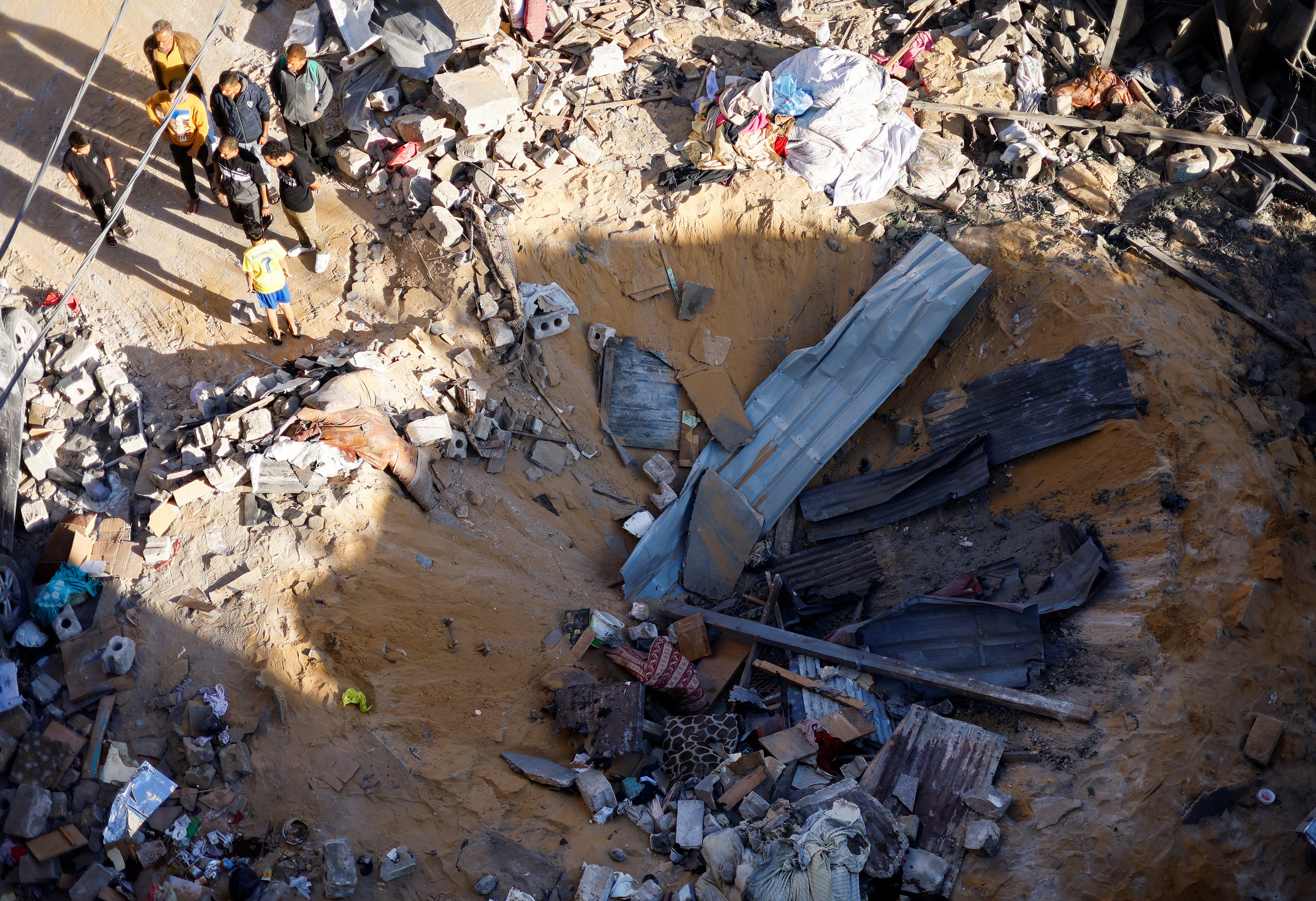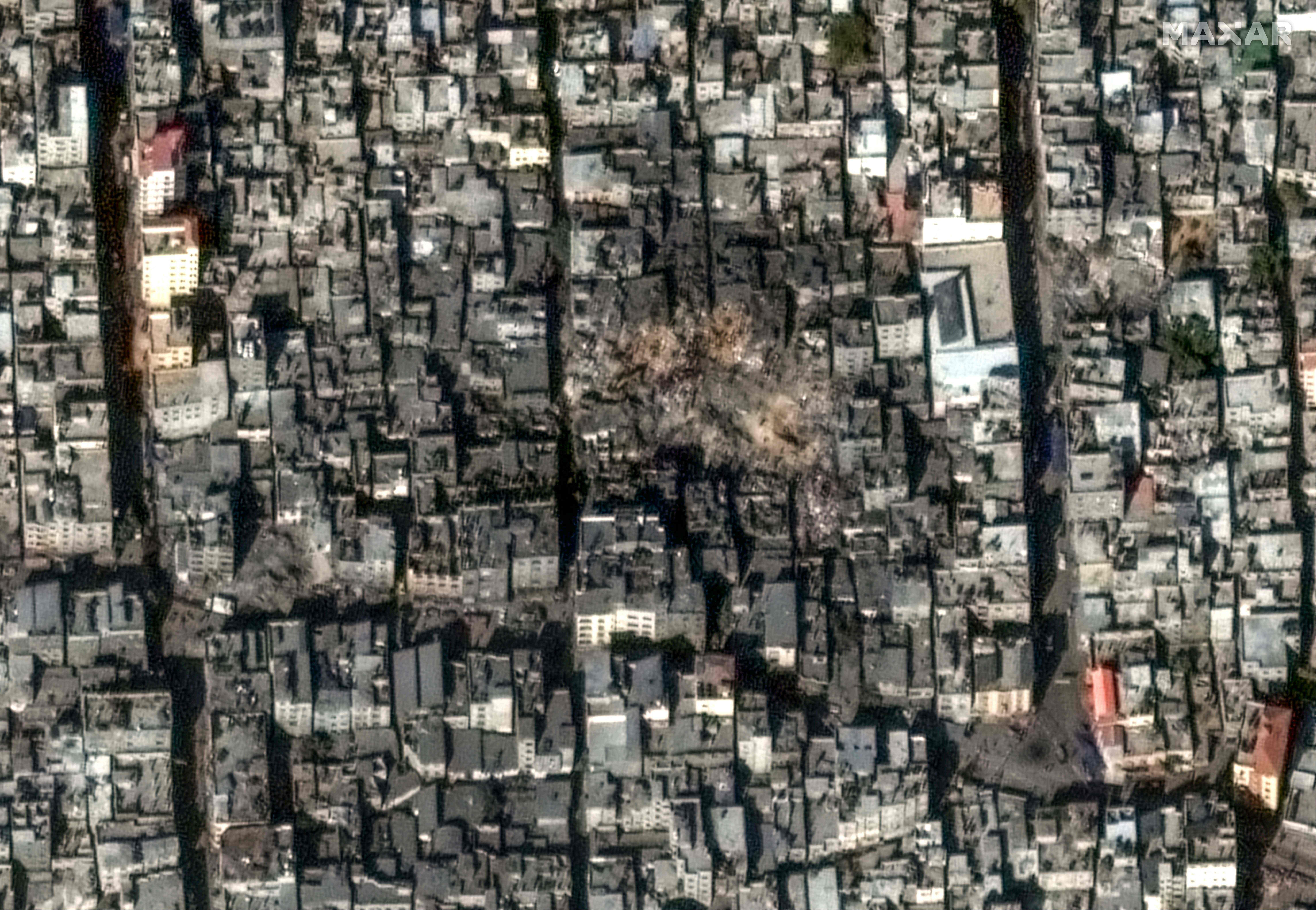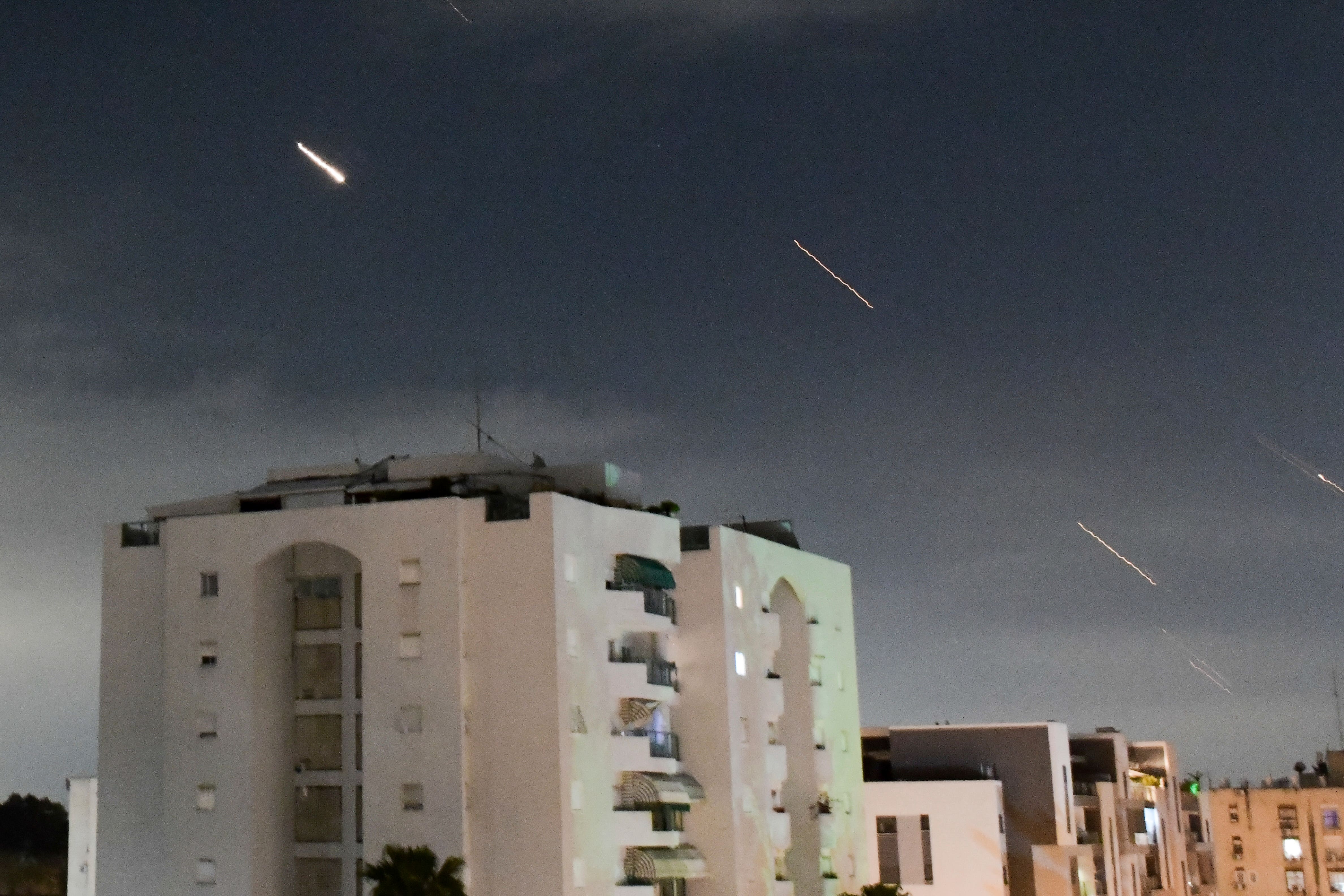What weapons has the US paused sending to Israel – and what else do they supply?
The US sends roughly $3.3 billion in military and financial aid to Israel every year

Your support helps us to tell the story
From reproductive rights to climate change to Big Tech, The Independent is on the ground when the story is developing. Whether it's investigating the financials of Elon Musk's pro-Trump PAC or producing our latest documentary, 'The A Word', which shines a light on the American women fighting for reproductive rights, we know how important it is to parse out the facts from the messaging.
At such a critical moment in US history, we need reporters on the ground. Your donation allows us to keep sending journalists to speak to both sides of the story.
The Independent is trusted by Americans across the entire political spectrum. And unlike many other quality news outlets, we choose not to lock Americans out of our reporting and analysis with paywalls. We believe quality journalism should be available to everyone, paid for by those who can afford it.
Your support makes all the difference.The US paused a shipment of thousands of bombs to Israel last week, US officials have revealed, over concerns about on assault on the Gaza border city of Rafah.
It was the first time in the seven months of Israel’s war on Hamas in the enclave that the US has suspended weapons shipments. The two countries, since Israel’s founding in 1948, have been close military partners.
A US official, speaking on the condition of anonymity, claimed that as Israeli leaders prepared for an attack on Rafah – which the US and the UK have repeatedly warned against – administration of Joe Biden “began to carefully review proposed transfers of particular weapons to Israel that might be used”. That process began in April.
“As a result of that review, we have paused one shipment of weapons last week,” the official said.
Included in that paused shipment is said to be 1,800 bombs weighing 900 kilograms each, and 1,700 smaller ones, with the US concern focused on how the larger bombs could be used in a dense urban setting, according to the official.
It was not clear exactly which bombs were sent but it was revealed in March that the Biden administration had quietly authorised the transfer of 1,800 MK84 bombs, according to Pentagon and State Department officials familiar with the matter. Those bombs weigh 900kg each.
They have been linked to previous mass-casualty events throughout Israel’s military campaign in Gaza, including strike on the Jabalya refugee camp, which killed more than 100 people. United Nations officials decried the strike as a “disproportionate attack that could amount to war crimes”. Israel – which denies all allegations of war crimes – said the strike resulted in the death of a Hamas leader.

But the bombs, capable of levelling city blocks and leaving craters in the earth 40 feet across, are rarely used by Western militaries in densely populated areas due to the risk to civilian life.
In the package of weapons for Israel authorised by Washington in March, were also 500 MK82 227 kg bombs, as well as 25 F-35A fighter jets and engines worth roughly $2.5 billion (£2bn).
Usually, such transfers have to be passed through Congress, but the package was approved by Congress in 2008, so the department was not required to provide a new notification to lawmakers.
The US has stepped up military support for Israel in the wake of the Hamas attack on 7 October that killed around 1,200 people, with another 250 people having been taken hostage. Last month, Congress passed a bill that would provide $14.1bn in Israel-related aid.
The bill includes $4bn in funding for the Iron Dome and David’s Sling missile defence systems, $1.2bn of Pentagon funding for the Iron Beam laser-based defence system, $3.5bn in further aid, and $801.4m for ammunition procurement.
In 2016, the two countries signed their third 10-year Memorandum of Understanding on military aid, committing the US to providing $38bn in assistance up to 2028. That comprises of $33bn in military financing grants, plus $5bn for missile defence.

Though the two countries do not have a formal defence pact, the US is Israel’s biggest supplier by a considerable margin, providing an estimated 68 per cent of Israel’s foreign-sourced weapons. Germany, providing around 30 per cent, is Israel’s second largest supplier.
Washington has sent around $300 billion (adjusted for inflation) in total economic and military assistance, according to the Council on Foreign Relations, a US think tank. US aid reportedly accounts for some 15 per cent of Israel’s defence budget.
Israel has agreed to use US weapons only in self-defence but allies have become increasingly vocal about a rising death toll in Gaza as a result of Israel’s attacks.
In February 2024, four months into the war in Gaza, Mr Biden issued a national security memo requiring recipients of US military aid to give written assurances that they would observe international law in their use of the aid, and that they would facilitate the delivery of US humanitarian assistance in the area of conflict where the US military aid is being used.
Join our commenting forum
Join thought-provoking conversations, follow other Independent readers and see their replies
Comments